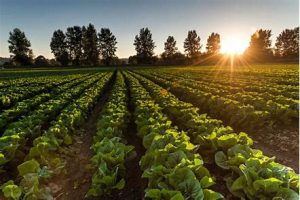Tips for Buying Agricultural Land
 When it comes to investing in agricultural land, there’s more to consider than just location and price. Whether you’re a seasoned farmer looking to expand your operations, or a novice investor interested in the potential returns of rural real estate, these tips will help you make an informed decision when buying agricultural land.
When it comes to investing in agricultural land, there’s more to consider than just location and price. Whether you’re a seasoned farmer looking to expand your operations, or a novice investor interested in the potential returns of rural real estate, these tips will help you make an informed decision when buying agricultural land.
Define Your Purpose
Before you start your search, determine your goals for the land. Are you planning to cultivate crops, raise livestock, or simply hold it as an investment? Your purpose will influence the type of land you need and its location.
Research Local Regulations
Each area may have different zoning laws, land use restrictions, and environmental regulations that can affect your plans. Investigate local ordinances and consult with experts or government authorities to ensure your intended use aligns with the land’s zoning.
Assess Soil Quality
Soil quality is paramount for agricultural success. Conduct soil tests to evaluate its composition, fertility, and drainage. This information will help you determine which crops or livestock are suitable for the land and any necessary soil improvement measures.
Consider Water Sources
Access to a reliable and ample water supply is essential for farming. Check if the land has access to natural water sources like rivers, lakes, or ponds, and consider the cost and feasibility of installing irrigation systems if needed.
Infrastructure and Accessibility
Ensure the land has adequate infrastructure, such as roads, electricity, and buildings. Easy accessibility is crucial for transportation of goods and equipment. Factor in any necessary improvements or construction costs.
Evaluate Environmental Factors
Assess the land’s susceptibility to natural disasters like floods, droughts, or wildfires. Consult local climate data and seek expert advice to understand the potential risks and how they might impact your operations. Visit the land at different times of the year to get a better understanding of its conditions throughout the seasons. This can help you anticipate any potential challenges.
Conduct a Topographic Survey
Understanding the land’s topography can help you plan your farm layout, drainage systems, and irrigation. A topographic survey can reveal elevation changes, slopes, and potential areas prone to erosion. You will also want to verify property boundaries. Ensure that property boundaries are clearly marked and legally defined. A professional land surveyor can help confirm these boundaries to avoid any future disputes.
Seek Professional Assistance
Consult with experts like real estate agents, agricultural extension officers, lawyers, and financial advisors who specialize in rural real estate transactions. Their insights and guidance can be invaluable in making the right decision.
Negotiate Wisely
Don’t rush into negotiations. Take your time to assess the property thoroughly and be prepared to negotiate the price based on your findings and any necessary improvements.
Buying agricultural land is a significant investment that requires careful consideration and due diligence. By following these tips and conducting thorough research, you’ll be better equipped to make an informed decision that aligns with your agricultural goals and financial objectives.
Buying or Selling in Northeast Florida?
If you’re looking to buy or sell a home in Northeast Florida, you’ve come to the right place. Here at the Welch Team, we specialize in helping homeowners sell their properties and find the homes of their dreams. Contact us today to learn more!






